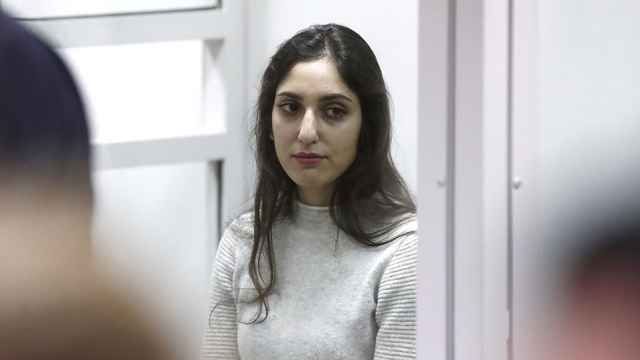Israel has extradited suspected Russian hacker Alexei Burkov to the United States despite Moscow’s proposal to swap him for an Israeli woman jailed in Russia over marijuana possession, The Times of Israel reported Monday.
Burkov, who was detained during a visit to Israel in 2015, is wanted in the U.S. on charges of credit card fraud. Russia last month had asked Israel to exchange Burkov for Naama Issachar, a U.S.-Israeli citizen sentenced to seven and a half years in Russian prison on drug-smuggling charges.
The Russian Embassy in Israel criticized the court decision to extradite Burkov as a violation of his rights. In a Facebook post, the diplomatic mission questioned Israel’s “ability to ensure the security and rights of Russian citizens visiting the country.”
“We believe it [...] not conducive to the progressive development of Russian-Israeli relations,” the Russian Embassy said.
The U.S. Embassy in Israel has not commented on either case.
President Vladimir Putin has snubbed Israeli Prime Minister Benjamin Netanyahu’s repeated requests to free Issachar because of the Israeli leader’s current political weakness, Bloomberg reported Tuesday.
Putin will personally decide Issachar’s fate, possibly after January, Bloomberg cited two people with knowledge of Kremlin deliberations as saying. One of the people reportedly said that Putin did not want to hand Netanyahu a political “gift” as the Israeli leader struggles to extend his rule and avoid a corruption trial.
“Alexei and Naama are both victims of political games,” Bloomberg quoted Konstantin Bekenshtein, a Ukrainian-born Israeli who reportedly offered Issachar’s mother a swap with Burkov, as saying.
Russian authorities detained Issachar in April during a layover in a Moscow airport and accused her of having 9 grams of cannabis in her bag.
She pleaded not guilty to charges of drug smuggling but didn't deny that the cannabis in her bag was hers. Israel condemned Issachar’s sentencing last month as "heavy" and "disproportionate."
A Message from The Moscow Times:
Dear readers,
We are facing unprecedented challenges. Russia's Prosecutor General's Office has designated The Moscow Times as an "undesirable" organization, criminalizing our work and putting our staff at risk of prosecution. This follows our earlier unjust labeling as a "foreign agent."
These actions are direct attempts to silence independent journalism in Russia. The authorities claim our work "discredits the decisions of the Russian leadership." We see things differently: we strive to provide accurate, unbiased reporting on Russia.
We, the journalists of The Moscow Times, refuse to be silenced. But to continue our work, we need your help.
Your support, no matter how small, makes a world of difference. If you can, please support us monthly starting from just $2. It's quick to set up, and every contribution makes a significant impact.
By supporting The Moscow Times, you're defending open, independent journalism in the face of repression. Thank you for standing with us.
Remind me later.






